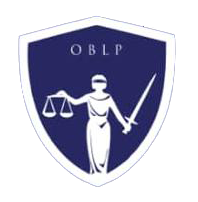Names of Counsel that should appear in judgement of court; highlighting the Court of Appeal’s decision in Elias v Ecobank Nigeria Plc (2017) 2 NWLR (Pt. 1549) 175
Ordinarily, the concerned part of the decision of Lagos division of the Court of Appeal in Elias v Ecobank (supra) ought not be of immense interest to practicing lawyers but for the requirement of a certain number of Court of Appeal judgments in an application for the prestigious rank of Senior Advocate of Nigeria, which might have prompted the learned senior lawyer to make such an audacious application as would be seen later hereunder.
As it is my style, I will once again, lead my audience into the facts of the case under this spotlight for the necessary appreciation of the court’s ratio as to the names that ought to appear in judgment of courts.
As borne by the judgment, during the pendency of Appeal Number: CA/L/873/2013, Dr. Charles Mekwunye’s clients (the appellants) demolished the property subject matter of the suit and when delivering the judgment, although the name of the counsel who adopted the appellants’ brief was not reflected in the end of the judgment and in the judgment itself, Obaseki – Adejumo JCA held thus:
“In his brief of argument, appellants’ counsel was silent on the contemptuous conduct of the appellants by demolition of the property. It is the duty of counsel to exhibit high level decorum and candour and fairness to the court and to other lawyers … counsel appearing before any court owes a bounden duty to be diligent, treat, the court with respect, honesty and mutual courtesy…”
Dissatisfied with the omission of their counsel’s name in the judgment and the uncomplimentary remark of the presiding Justice, the appellants filed an application at the same court, for an order “reviewing and/or varying and/or annulling part of the judgement” to show that Mr. E. Nwonu holding the brief of Dr. Charles Mekwunye was in court and adopted the appellants’ brief and to “delete the said remarks made by Obaseki – Adejumo, JCA against their counsel to show that Dr. Charles Mekwunye appeared for them when judgement was delivered.
In ruling on the application, Augie, JCA (now JSC) held thus:
“Now the applicants are urging us to review and/or vary and/or annul part of the judgment to reflect three things… The third which is to vary the judgement to show that the said Dr. Charles Mekwunye was in court when the judgment was delivered, is out of the question because, as the respondent said, it is the names of counsel who argued the appeal itself that are listed in the judgment, not the name of counsel who merely appeared on the date of judgment…..so the Constitution recognizes that delivery of a judgment is a different process entirely from the writing of the judgment, wherein the names of counsel who adopted the briefs of argument at the appeal are listed.” (Emphasis mine)
From the foregoing decision which, to my knowledge, is yet to be set aside by the Supreme Court, the prevalent practice in judgment writing which lists the name of counsel present at judgment delivery at the expense of counsel who conducted the case or adopted the final address, ought to be relegated to the background on the strength of this 2016 but extant position of the Court of Appeal.
I however hope this decision doesn’t open a floodgate of applications for the correction of judgments and rulings which have omitted the names of counsel who argued the briefs or adopted the final addresses at the respective courts.



